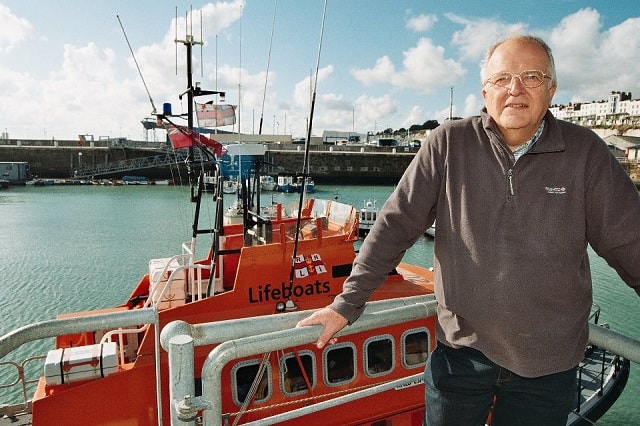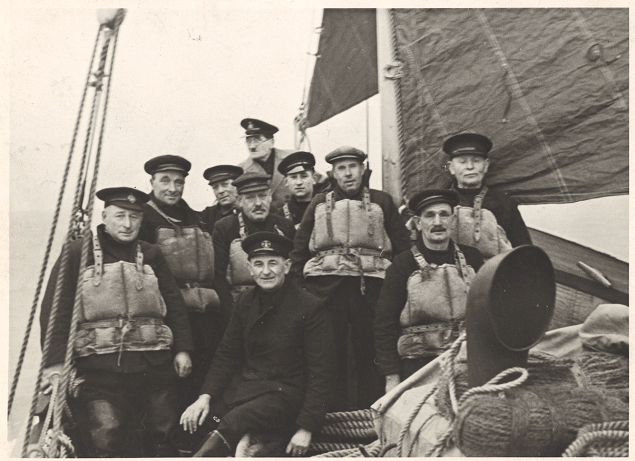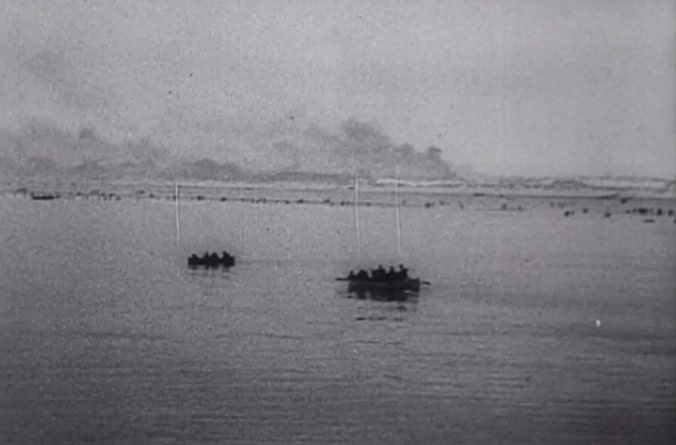
By Beth Robson
The Royal National Lifeboat Institution’s (RNLI) new 200 Voices podcast launched on Friday 18 Augus and, in the run-up to the charity’s bicentenary on 4 March 2024, an episode will be released every day for 200 days, exploring captivating stories from the charity’s history, through to the current day.
This month, RNLI archivist John Ray tells listeners about the Ramsgate RNLI crew who braved bombs and bullets in the pursuit of bringing back stranded troops cornered on the beaches of Dunkirk by enemy soldiers.
What became known as Operation Dynamo was a mammoth undertaking between 26th May and 4th June 1940 which saw around 850 private boats answer the call for assistance by evacuating 338,000 British and French soldiers. Nineteen RNLI lifeboats assisted from stations across the East and South coasts spanning Great Yarmouth to Shoreham, but only two went under their own crews: Ramsgate and Margate.

John said: “Before that call was made to the RNLI the local commander had asked the crews at Ramsgate and Margate if they would be prepared to take their boats across. Ramsgate set sail on the 30th May at 2.30pm and they arrived over on the beaches at 8pm that evening following a long dog-legged route that had been swept by mine sweepers. They also had in tow 18 small rowing boats.
“The plan was that they and some naval ratings they had taken onboard would get as close to the coast as they could with the lifeboat and that the small boats would be rowed ashore and ferry people to the lifeboat. When the lifeboat was full they would take the people out to a larger vessel and when that was full they would then depart for England.”
The crew, led by Coxswain Howard Knight, were away from the harbour for 48 hours. Thirty of those hours were spent off the beaches of Dunkirk ferrying troops out to the larger ships.
John added: “They were out there all that time under fire. They were credited with taking 2800 troops off the beaches and getting them to the larger ships and in their final journey they also filled up the lifeboat with troops to come back to Ramsgate.
“You can only be amazed at what they went through – and survived thank goodness.”

The charity has been saving lives at sea since it was founded in 1824 and, in that time, its lifeboat crews and lifeguards have saved over 144,000 lives. Funded by voluntary donations, and with lifeboats crewed by specially-trained volunteers, the RNLI is a truly unique rescue organisation with a remarkable 200-year story to tell – many highlights of which are shared through the podcast series.
Available across all podcast platforms and the RNLI’s website, listeners can hear from survivors, supporters, volunteers, lifeguards, celebrity ambassadors, historians and many more from across the UK and Ireland – and beyond.
The 200 Voices series also includes celebrity ambassadors such as The Sixth Commandment actor Timothy Spall, Gavin and Stacey actress Ruth Jones, Irish musician Phil Coulter, gold medal Olympian Sir Ben Ainslie and BAFTA-winning actress Joanna Scanlan. A few days after launching it featured fellow Kent resident and RNLI supporter Jim Moir AKA Vic Reeves.

RNLI Strategic Content Manager, Rory Stamp said: “We knew we had to do something really special to mark the RNLI’s 200th anniversary, which is such a monumental milestone.
“200 Voices is an incredible collection of stories that are emotive, powerful, inspiring and heart-warming. The series gives us a chance to hear from a whole variety of amazing people who have played a part in or been touched by our lifesaving charity.”
Listen to the RNLI’s 200 Voices daily wherever you get your podcasts or at RNLI.org/200Voices.
To find out more about the RNLI’s bicentenary, visit RNLI.org/200.

